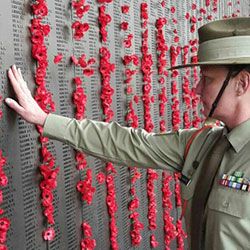Certificate IV in Business (Cyber Security)
BSB40120
Are you interested in earning the BSB40120 Certificate IV in Business (Cyber Security) through Recognition of Prior Learning (RPL)? You may be eligible to receive this qualification based on the work you’ve already done. And, you could do it without having to complete any additional study.
Overview
The Certificate IV in Business (Cyber Security) is a specialty version of the Certificate IV in Business available to complete by Recognition of Prior Learning.
Certificate IV in Business (Cyber Security) recognises that technology and data are integral in organisations across the globe. Cyber security in business relates to the ability to protect our data and safely manage our technology.
You could be working across a wide range of industries and sectors as technology is now embedded in organisations small to large. So, your work responsibilities may be solely dedicated to cyber security or you may be working with other technical experts to contribute to the cyber security of your workplace.
Qualification Details
The fees for this qualification are as follows:
Qualification through RPL: $1295
We have a range of payment options available for you including: Bank Transfer, Credit Card and Installment Payment Plans. Find out more here.
How does the RPL process work?
- We conduct a free qualification appraisal and give you a report
- You tell us the qualifications you want and provide work examples
- You receive nationally recognised qualifications!
Let’s step this out a bit more:
Step 1. We conduct a free qualification appraisal and give you a report.
The RPL process begins with a conversation with one of our Skills Recognition Advisors.
- You tell us what you’re looking for and where you want to go
- You provide a few easily accessible documents
- You’ll be sent a report within 48 hours. This will include a breakdown of costs involved and lists the qualifications:
- you could be eligible for right now;
- you could be eligible for if you are able to provide some further work examples (and we’ll share with you what the gaps are and the work examples we’d need); or
- if training would be your best option. We don’t offer the training so we’ll give you some information about how to locate a training organisation who delivers what you are looking for.
This is cost-free and obligation-free.
Step 2. You tell us the qualifications you want and provide work examples
You can make an informed decision about which qualifications are best for you and your career. Once this is confirmed, we can complete the process.
- We tell you exactly what work examples we need to establish your competency in the units that make up a qualification
- You provide your work examples, then you can sit back and relax!
- We match the work examples to the units. This is called mapping. Other providers may get you to do this yourself.
Step 3. You receive nationally recognised qualifications!
Congratulations! Your experience has been validated and translated into nationally recognised qualifications.
- To save you time, we submit all the paperwork to the government for you. This formalises your qualifications.
- You receive your qualifications though both email and post, within 14 days. Or, with our VIP Fast-Track Service, you can have them in just 7 days.
Are RPL qualifications nationally recognised? Yes.
Churchill Education is a registered training organisation, RTO:31430. This means that we are regulated by the Australian Skills Quality Authority (ASQA), the Australian Government regulatory body for the VET sector.
The qualifications that we offer are nationally recognised, and issued under the Australian Qualifications Framework (AQF). Accordingly, they’re exactly the same as those granted by other educational institutions such as TAFE.
View the core and elective units that this qualification can be comprised of through Recognition of Prior Learning.
Where could this qualification take you?
Use effective communication skills and knowledge to produce complex documents and build communication in the workplace
For specialisation in Cyber Security, Certificate IV in Business (Cyber Security), 6 elective units are required to complete this specialisation.
The elective units focus on risk management strategies that are commonly used in workplaces to protect their technology and data. Your role is to support the cyber security practices in your workplace, assisting in reviews and practical knowledge sharing as well as identifying policy improvements and sharing information with the team to promote cyber security.
A total of 12 units of competency must be completed in Certificate IV in Business (Cyber Security). The units of competency required are:
- 6 core units; plus
- 6 elective units.
Your cyber security experience can help you achieve the Certificate IV in Business (Cyber Security) through Recognition of Prior Learning (RPL).
For a successful RPL application in Certificate IV in Business (Cyber Security), your cyber security experience needs to cover these practical situations:
- Maintained the security of two different electronic devices over the life of a small project or work cycle through using best practice protection strategies; for example, you may show evidence of your password management, using a virtual private network (VPN) or ensuring anti-virus software is used.
- Ensuring software is updated and a register of devices maintained and checked for cyber security arrangements.
- Involved in at least 2 cyber security incidents at work. For example, you may have assisted in responding to an incident where a compromising email has been sent through to a team member and examining the response, including a post-breach review.
- Identifying at least 3 real or potential cyber security threats to consider at your work and how you could minimise the risk.
- For example, you may have revisited password policies, malware attacks (such as through emailed files) or ransomware (where hackers encrypt your data and demand payment to unlock it).
- Developed at least 1 policy for your workplace to promote cyber safety and arranged at least 2 training / updates to share with colleagues on cyber safety.
The 6 core units are mandatory for every student completing the qualification. When you look at the core units you can see that these key competencies are valued in workplaces across the country:
- Critical thinking – the deeper thinking that considers questions, takes in information and analyses work practices. This is the type of thinking that goes further than just doing something because it has always been done that way.
- Using digital technologies – collaborating through technology has become vital today
- Building and maintaining business relationships
- Keeping workplaces healthy and safe
Apply for a Complimentary Assessment
You might also be interested in...
Graduate stories
After 30 years of Military service, Ken was diagnosed with Type One Diabetes and had to be medically discharged. Ken was able to convert his service into an Advanced Diploma in Work Health and Safety, which helped him to secure civilian employment at a management level and achieve a better quality life.

Graduate Reviews









